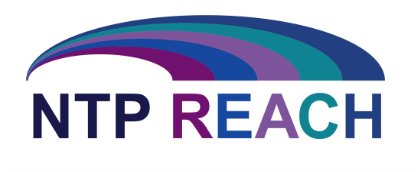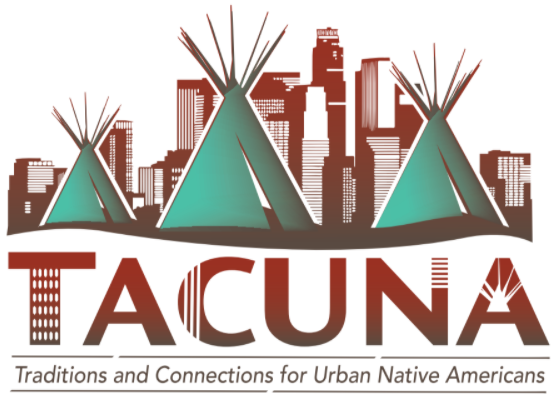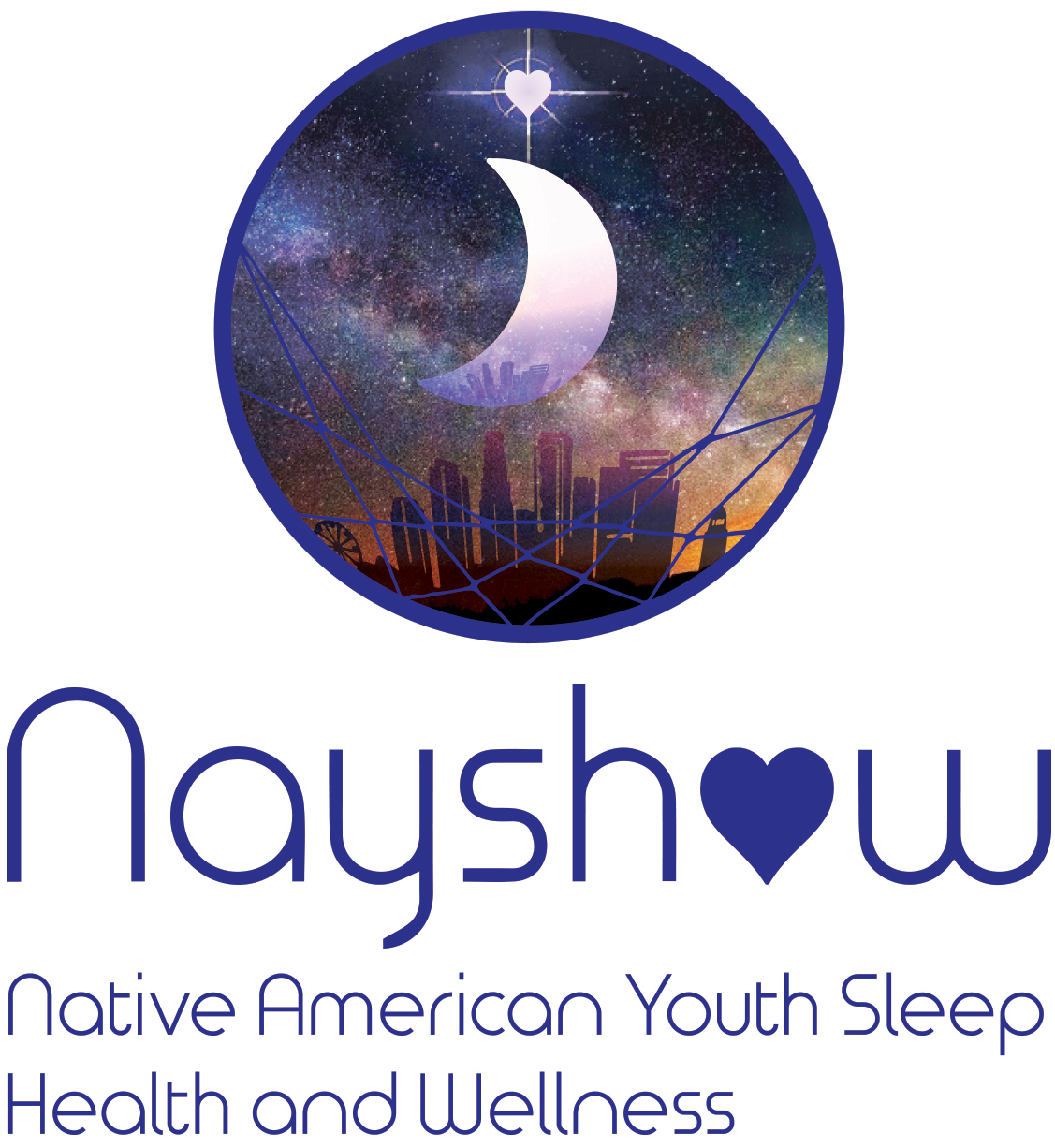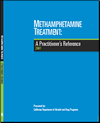 UCLA Integrated Substance Use and Addiction Programs (UCLA ISAP) partners with CA Department of Health Care Services (DHCS) to provide implementation support services for the CA State Opioid Response (SOR) grant program, which initiated in 2018. The DHCS Opioid Response addresses the opioid and stimulant use disorder crises by improving access to treatment, reducing unmet treatment needs, and reducing opioid and stimulant-related overdose deaths through the provision of prevention, treatment, and other recovery service activities. Through SOR funding, UCLA ISAP established the Opioid and Stimulant Implementation Support-Training and Technical Assistance program (OASIS-TTA) offering ongoing and multiple learning opportunities with live and self-paced curriculum, access to clinical consultation, and technical assistance.
UCLA Integrated Substance Use and Addiction Programs (UCLA ISAP) partners with CA Department of Health Care Services (DHCS) to provide implementation support services for the CA State Opioid Response (SOR) grant program, which initiated in 2018. The DHCS Opioid Response addresses the opioid and stimulant use disorder crises by improving access to treatment, reducing unmet treatment needs, and reducing opioid and stimulant-related overdose deaths through the provision of prevention, treatment, and other recovery service activities. Through SOR funding, UCLA ISAP established the Opioid and Stimulant Implementation Support-Training and Technical Assistance program (OASIS-TTA) offering ongoing and multiple learning opportunities with live and self-paced curriculum, access to clinical consultation, and technical assistance.
The OASIS-TTA program consists of four major Training and Technical assistance projects:
Training content is developed using evidence-based practices and stakeholder consultation, and remains consistent with DHCS Opioid Response priorities. Visit the OASIS-TTA website to access trainings, request free consultation, and connect with clinical resources.
Project Website: https://www.uclaisap.org/oasis-tta/index.html
Project Contact: Gloria Miele: gmiele@mednet.ucla.edu
With support from SAMHSA, the Alcott Center's Bridge to Recovery program is providing comprehensive mental health, substance use, and support services for justice-involved clients in Los Angeles County. UCLA-ISAP is providing the Alcott Center with evaluation and technical assistance services to support the Bridge to Recovery program.
Project Contact: Howard Padwa, Ph.D.: hpadwa@mednet.ucla.edu
 As part of the California Department of Healthcare Services (DHCS) Opioid Response projects, the California Hub and Spoke System (CA H&SS) is focused on increasing access to medications for opioid use disorder (MOUD) throughout the state, particularly in counties with the highest overdose rates. The CA H&SS consists of narcotic treatment programs (NTPs), referred to as "Hubs," that provide methadone and buprenorphine for opioid use disorder (OUD) and office-based treatment settings, referred to as "Spokes," that provide buprenorphine and other SUD services for ongoing care and maintenance treatment. Under the OASIS-TTA Program, UCLA ISAP provides training and technical assistance to subcontractors who are part of the CA H&SS to support sites to increase access to medications for opioid use disorder (MOUD) throughout the state, particularly in counties with the highest overdose rates.
As part of the California Department of Healthcare Services (DHCS) Opioid Response projects, the California Hub and Spoke System (CA H&SS) is focused on increasing access to medications for opioid use disorder (MOUD) throughout the state, particularly in counties with the highest overdose rates. The CA H&SS consists of narcotic treatment programs (NTPs), referred to as "Hubs," that provide methadone and buprenorphine for opioid use disorder (OUD) and office-based treatment settings, referred to as "Spokes," that provide buprenorphine and other SUD services for ongoing care and maintenance treatment. Under the OASIS-TTA Program, UCLA ISAP provides training and technical assistance to subcontractors who are part of the CA H&SS to support sites to increase access to medications for opioid use disorder (MOUD) throughout the state, particularly in counties with the highest overdose rates.
An overarching goal is to actively increase the availability of MOUD by increasing the total number of physicians, physician assistants and nurse practitioners prescribing buprenorphine, while working to develop a sustainable system of care using evidence-based practices for patients with OUD. ISAP is contracted to provide training, technical assistance, and implementation support to the CA H&SS provider network through regionalized Learning Collaboratives and ongoing training and mentorship opportunities. As much as possible, CEs and CMEs are available for certified and licensed participants.
Subcontractors are required to attend a learning series each quarter, consisting of a webinar, followed by regional learning collaboratives to apply concepts in their programs, review quality improvement measures, and plan for changes to improve access to care. Visit UCLA's California Hub & Spoke System project page to learn more, participate in upcoming learning opportunities, including monthly MAT ECHO clinics, access resources, and request free technical assistance.
Project Website: http://www.uclaisap.org/oasis-tta/html/ca-hub-and-spoke.html
Project Contact: Martha Carreon: marthacarreon@mednet.ucla.edu
 The Provider Support Initiative (PSI) is a webinar series focused on best practices to treat opioid and stimulant use disorder and related conditions. The goals of the webinars are to expand access to medications for opioid use disorder (MOUD) and provide workforce development across the care continuum. Sessions occur on the second and fourth Tuesdays of the month at noon Pacific time. The first session is a didactic presentation, and the second session is a follow up Q&A to deepen learning. Continuing Medical Education and Continuing Education (CME/CE) are offered at no cost. Visit UCLA’s OASIS-TTA website to register for the series and/or find trainings (upcoming and recorded/self-paced).
The Provider Support Initiative (PSI) is a webinar series focused on best practices to treat opioid and stimulant use disorder and related conditions. The goals of the webinars are to expand access to medications for opioid use disorder (MOUD) and provide workforce development across the care continuum. Sessions occur on the second and fourth Tuesdays of the month at noon Pacific time. The first session is a didactic presentation, and the second session is a follow up Q&A to deepen learning. Continuing Medical Education and Continuing Education (CME/CE) are offered at no cost. Visit UCLA’s OASIS-TTA website to register for the series and/or find trainings (upcoming and recorded/self-paced).
Project Website: https://www.uclaisap.org/oasis-tta/html/programs.html#provider-webinars
Project Contact: Christian Frable: Cfrable@mednet.ucla.edu
 Project ECHO® (Enhancing Community Health Care Outcomes) is a web-based, video-conferencing platform designed to provide case-based learning opportunities and increase workforce capacity to offer best practice specialty care. This monthly MAT ECHO® Clinic (4th Monday at noon Pacific time) is an opportunity for MAT providers and treatment teams to learn evidence-based practices to treat people with opioid, stimulant, and other substance use disorders. Through didactic and case-based learning, participants engage in clinical discussion with experienced, multidisciplinary treatment providers. Continuing Medical Education and Continuing Education (CME/CE) offered at NO COST. Visit UCLA's OASIS-TTA website to register for the series and/or find trainings (upcoming and recorded/self-paced).
Project ECHO® (Enhancing Community Health Care Outcomes) is a web-based, video-conferencing platform designed to provide case-based learning opportunities and increase workforce capacity to offer best practice specialty care. This monthly MAT ECHO® Clinic (4th Monday at noon Pacific time) is an opportunity for MAT providers and treatment teams to learn evidence-based practices to treat people with opioid, stimulant, and other substance use disorders. Through didactic and case-based learning, participants engage in clinical discussion with experienced, multidisciplinary treatment providers. Continuing Medical Education and Continuing Education (CME/CE) offered at NO COST. Visit UCLA's OASIS-TTA website to register for the series and/or find trainings (upcoming and recorded/self-paced).
Project Website: https://www.uclaisap.org/oasis-tta/html/programs.html#provider-webinars
Project Contact: Christian Frable: Cfrable@mednet.ucla.edu
 Project ECHO® (Enhancing Community Health Care Outcomes) is a web-based, video-conferencing platform designed to provide case-based learning opportunities and increase workforce capacity to offer best practice specialty care. This monthly Tribal MAT ECHO® clinic (third Tuesday at noon Pacific time) is designed for MAT providers and health care teams serving Native communities across California to learn evidence-based practices to treat people with opioid, stimulant, and other substance use disorders. Each session consists of a brief didactic presentation followed by case-based learning and clinical discussion. Continuing Medical Education and Continuing Education (CME/CE) offered at NO COST. Visit UCLA's OASIS-TTA website to register for the series and/or find trainings (upcoming and recorded/self-paced).
Project ECHO® (Enhancing Community Health Care Outcomes) is a web-based, video-conferencing platform designed to provide case-based learning opportunities and increase workforce capacity to offer best practice specialty care. This monthly Tribal MAT ECHO® clinic (third Tuesday at noon Pacific time) is designed for MAT providers and health care teams serving Native communities across California to learn evidence-based practices to treat people with opioid, stimulant, and other substance use disorders. Each session consists of a brief didactic presentation followed by case-based learning and clinical discussion. Continuing Medical Education and Continuing Education (CME/CE) offered at NO COST. Visit UCLA's OASIS-TTA website to register for the series and/or find trainings (upcoming and recorded/self-paced).
Project Website: https://www.uclaisap.org/oasis-tta/html/programs.html#tribal-mat-echoProject
Project Contact: Christian Frable: Cfrable@mednet.ucla.edu
 In response to the nation's opioid and stimulant crises, SAMHSA awarded a three-year grant to provide technical assistance (TA) to states and territories to the American Academy of Addiction Psychiatry (AAAP) with a coalition of 46+ national professional organizations, forming the Opioid Response Network (ORN). These TA activities are designed to enhance efforts already underway throughout the United States and territories. ORN provides training and technical assistance via local experts across the country, focusing on applying evidence-based practices in prevention, treatment and recovery to meet locally identified needs.
In response to the nation's opioid and stimulant crises, SAMHSA awarded a three-year grant to provide technical assistance (TA) to states and territories to the American Academy of Addiction Psychiatry (AAAP) with a coalition of 46+ national professional organizations, forming the Opioid Response Network (ORN). These TA activities are designed to enhance efforts already underway throughout the United States and territories. ORN provides training and technical assistance via local experts across the country, focusing on applying evidence-based practices in prevention, treatment and recovery to meet locally identified needs.
Each TA team assigned to every state and territory has a prevention, treatment (physician with two years' experience treating opioid use disorders with medications), and recovery consultant. These consultants have been identified and vetted by ORN. All consultants provide evidence-based practices and resources as defined by the consortium. The goal of ORN is to streamline efforts to fill all gaps where needed and as defined by states. UCLA ISAP oversees ORN TA requests covering SAMHSA Region 9 (Arizona, California, Hawaii, Guam, Nevada, New Mexico, American Samoa, CNMI, FSM, Marshall Islands, Palau).
Project Website: https://opioidresponsenetwork.org/
Project Contacts:
 California's Narcotic Treatment Programs (NTPs) are ideally positioned to continue their pivotal role in expanding access to the full array of medications available to treat opioid use disorder. Through expanded and enhanced collaboration with community clinics, outpatient treatment programs, corrections departments, hospitals, and primary care providers, NTPs can continue to move California closer to its goal of dramatically increasing the availability of all opioid use disorder treatment medications throughout the state.
California's Narcotic Treatment Programs (NTPs) are ideally positioned to continue their pivotal role in expanding access to the full array of medications available to treat opioid use disorder. Through expanded and enhanced collaboration with community clinics, outpatient treatment programs, corrections departments, hospitals, and primary care providers, NTPs can continue to move California closer to its goal of dramatically increasing the availability of all opioid use disorder treatment medications throughout the state.
The NTP REACH project is designed to support NTPs in this endeavor by providing $1.5 million in subgrant funds for up to a dozen subgrantees. This funding will be awarded for the purposes of:
Advocates for Human Potential, Inc. (AHP) in partnership with UCLA-ISAP is funded by DHCS to implement NTP REACH in FY 2019-20 to achieve these goals.
Project Website: http://uclaisap.org/ntpreach/
Project Contact: Elizabeth Teshome eteshome@mednet.ucla.edu
With support from SAMHSA's Center for Substance Abuse Treatment, Skid Row Housing Trust is implementing its Peer-Supported Pathways to Care (PSPC) program. PSPC is developing an integrated care model using peer specialists with lived experience with homelessness to enhance its permanent supportive housing program for individuals with substance use disorders or co-occurring substance use and mental health disorders. UCLA-ISAP is providing Skid Row Housing Trust with evaluation and technical assistance services to support PSPC project implementation and quality improvement activities.
Project Contact: Howard Padwa, Ph.D., hpadwa@mednet.ucla.edu
With support from SAMHSA's Center for Substance Abuse Prevention, Sunrise Community Counseling Center's Projecto Creer/Project Believe is offering substance use, HIV, and hepatitis prevention services to improve behavioral health and clinical outcomes for racial/ethnic minority young men who have sex with men (YMSM) in Los Angeles. Through a blend of clinical and peer supports, PC/PB is designed to improve community capacity to deliver effective prevention services for YMSM in Los Angeles' most underserved communities. UCLA-ISAP is providing Sunrise Community Counseling Center with evaluation and technical assistance services to support the implementation of PC/PB.
Project Contact: Howard Padwa, Ph.D., hpadwa@mednet.ucla.edu
With support from SAMHSA's Center for Substance Abuse Treatment, St. Joseph Center is integrating substance use disorder treatment with a Housing First model of care to improve clinical outcomes and housing stability for individuals who are experiencing homelessness or are at risk for homelessness in Los Angeles County. UCLA-ISAP is providing St. Joseph Center with evaluation and technical assistance services to support the implementation of PRIME and facilitate ongoing quality improvement activities.
Project Contact: Howard Padwa, Ph.D., hpadwa@mednet.ucla.edu
On November 8, 2016, California voters approved Proposition 64, which legalized non-medicinal adult use of cannabis. UCLA-ISAP has received a contract from the California Department of Cannabis Control (DCC) to monitor the impacts that Proposition 64 has on rates of cannabis use, problematic use, cannabis use disorder, cannabis use disorder treatment, and other health-related outcomes of legalization. The purpose of evaluation activities is to generate data-driven, evidence-based recommendations for steps that the DCC, policymakers, healthcare systems, and other stakeholders can take to safeguard and promote the health and wellness of Californians in the age of cannabis legalization.
Project Contact: Howard Padwa, Ph.D., hpadwa@mednet.ucla.edu
 UCLA Integrated Substance Use and Addiction Programs (UCLA ISAP) partners with CA Department of Health Care Services (DHCS) to provide Evaluation services for the CA State Opioid Response (SOR) grant program, which initiated in 2017. The DHCS Opioid Response addresses the opioid and stimulant use disorder crises by improving access to treatment, reducing unmet treatment needs, and reducing opioid and stimulant-related overdose deaths through the provision of prevention, treatment, and other recovery service activities. The UCLA Evaluation Team established the UCLA SOR Data Portal which serves as the statewide database for collecting SAMSHA and DHCS required metrics for all SOR Contractors. UCLA analyzes and produces Evaluation reports, data briefs, and data visualizations on patient outcomes and policy implications. In collaboration with the OASIS-TTA program, the UCLA Evaluation Team offers training and technical assistance resources to collect meaningful data and use it to improve access to treatment, recovery, and overdose prevention services. Visit the OASIS-TTA website to access data resources relevant to the CA Opioid Response and review UCLA’s Evaluation Reports and other publications from the CA Opioid Response Evaluation efforts.
UCLA Integrated Substance Use and Addiction Programs (UCLA ISAP) partners with CA Department of Health Care Services (DHCS) to provide Evaluation services for the CA State Opioid Response (SOR) grant program, which initiated in 2017. The DHCS Opioid Response addresses the opioid and stimulant use disorder crises by improving access to treatment, reducing unmet treatment needs, and reducing opioid and stimulant-related overdose deaths through the provision of prevention, treatment, and other recovery service activities. The UCLA Evaluation Team established the UCLA SOR Data Portal which serves as the statewide database for collecting SAMSHA and DHCS required metrics for all SOR Contractors. UCLA analyzes and produces Evaluation reports, data briefs, and data visualizations on patient outcomes and policy implications. In collaboration with the OASIS-TTA program, the UCLA Evaluation Team offers training and technical assistance resources to collect meaningful data and use it to improve access to treatment, recovery, and overdose prevention services. Visit the OASIS-TTA website to access data resources relevant to the CA Opioid Response and review UCLA’s Evaluation Reports and other publications from the CA Opioid Response Evaluation efforts.
Project Website: https://www.uclaisap.org/oasis-tta/html/access-data-resources.html
Project Contact: Kendall Darfler: kdarfler@mednet.ucla.edu
 The California Drug Medi-Cal Organized Delivery System (DMC-ODS) waiver is a 5-year demonstration project designed to establish how organized substance use disorder care can increase the success of Drug Medi-Cal beneficiaries.
The California Drug Medi-Cal Organized Delivery System (DMC-ODS) waiver is a 5-year demonstration project designed to establish how organized substance use disorder care can increase the success of Drug Medi-Cal beneficiaries.
The waiver amendment was submitted by the Department of Health Care Services (DHCS) to the Centers for Medicare & Medicaid Services (CMS) in November 2014 and approved in August 2015. With implementation scheduled through 2020, the DMC-ODS waiver is anticipated to expand services available to Drug Medi-Cal beneficiaries, enhance care coordination, and support the development of an organized system of care for substance use disorders in participating California counties.
UCLA is contracted to assess the DMC-ODS waiver's success through various evaluation activities. Results and recommendations are then summarized and documented in reports and presentations. In addition, find information about the Treatment Perceptions Survey and the Brief Questionnaire for Initial Placement (BQuIP).
Project Website/Reports: http://www.uclaisap.org/dmc-ods-eval/
Project Contact: Valerie Antonini, MPH vpearce@mednet.ucla.edu
Policymakers in California have long been aware of the pressing need to expand and modernize SUD services for young people, and have concluded that increased services and regulatory reforms are sorely needed. Recent policy developments such as the Drug Medi-Cal Organized Delivery System (DMC-ODS) Demonstration Waiver and the Adult Use of Marijuana Act of 2016 (Proposition 64, which will generate funding for youth services) have created the potential for new services and resources. To help California seize these opportunities, the California Community Foundation (CCF) established a youth-first initiative focused on substance use, with an emphasis on underserved and high-risk communities in Los Angeles County (LAC). As part of this initiative, researchers from UCLA-ISAP and Azusa Pacific University are partnering with CCF to help develop a vision for a youth-centered system of SUD care in LAC. Through structured group exercises, group discussions, and interviews with LAC youth SUD providers, key stakeholders, and youth themselves, UCLA-ISAP and APU is creating a youth-centered vision that will be used to inform public education, system planning, and advocacy efforts in LAC and across California.
Project Contact: Sherry Larkins, Ph.D. slarkins@mednet.ucla.edu
Homelessness is a growing social and public health crisis in the United States, and on average, people experiencing homelessness (PEH) die 12 years sooner than the general U.S. population. Homelessness presents many logistical obstacles that make researching health and healthcare for PEH particularly difficult. To properly account for these factors, researchers need to partner with the ultimate experts on homelessness---PEH themselves—when conceptualizing and implementing research studies. Project RESPECT is bringing together a group of researchers and individuals who have personally experienced homelessness to improve the way that the perspectives of PEH are incorporated into research studies, generate a patient-centered agenda for research on homelessness, and develop guidance for researchers on how to effectively engage PEH in their studies.
Project Contact: Howard Padwa, Ph.D., hpadwa@mednet.ucla.edu
 TACUNA is a UG3/UH3 research project funded under the National Institutes of Health (NIH) Helping to End Addition Long-term (HEAL) Initiative through the National Institutes on Drug Abuse (NIDA). Dr. Daniel Dickerson is co-Principal Investigator with Dr. Elizabeth D'Amico (RAND) on this project that focuses on the development and analysis of TACUNA, an opioid prevention program for urban American Indian/Alaska Native (AI/AN) young adults. The first phase of this project consists focus groups in 3 large urban areas of California in order to finalize the development of TACUNA, a program that combines motivational interviewing and AI/AN traditional practices, while focusing on social network factors. Phase two consists of analyzing the benefits of TACUNA in a randomized controlled trial by comparing AI/AN young adults who receive TACUNA to AI/AN young adults who receive opioid education. This project will also develop and test strategies to facilitate sustainability of TACUNA and will conduct an economic evaluation to quantify programmatic costs and cost-effectiveness of the TACUNA program.
TACUNA is a UG3/UH3 research project funded under the National Institutes of Health (NIH) Helping to End Addition Long-term (HEAL) Initiative through the National Institutes on Drug Abuse (NIDA). Dr. Daniel Dickerson is co-Principal Investigator with Dr. Elizabeth D'Amico (RAND) on this project that focuses on the development and analysis of TACUNA, an opioid prevention program for urban American Indian/Alaska Native (AI/AN) young adults. The first phase of this project consists focus groups in 3 large urban areas of California in order to finalize the development of TACUNA, a program that combines motivational interviewing and AI/AN traditional practices, while focusing on social network factors. Phase two consists of analyzing the benefits of TACUNA in a randomized controlled trial by comparing AI/AN young adults who receive TACUNA to AI/AN young adults who receive opioid education. This project will also develop and test strategies to facilitate sustainability of TACUNA and will conduct an economic evaluation to quantify programmatic costs and cost-effectiveness of the TACUNA program.
Project Contact: Daniel Dickerson, D.O., M.P.H. ddickerson@mednet.ucla.edu
 Dr. Daniel Dickerson is co-Principal Investigator with Drs. Elizabeth D'Amico and Wendy Troxel from RAND on this research project funded by National Institute on Minority Health and Health Disparities (NIMHD). This study examines individual factors (cultural identity, American Indian/Alaska Native (AI/AN) historical loss, discrimination, and mental health), family-level factors (family cohesion and conflict, and racial socialization), and community-level factors (perceived safety, cohesion, sense of community, and socioeconomic disadvantage) that may be associated with heightened risk for sleep disturbances among urban AI/AN adolescents. This project examines proximal (night-to-day) and longitudinal (over two waves) associations among sleep disturbances and cardio metabolic [higher levels of central adiposity, blood pressure, glycosylated hemoglobin (HbA1c) and lower levels of high density lipoprotein cholesterol (HDL-c)] and behavior health risk factors [alcohol and other drug use, tobacco use, caffeine intake, sedentary behavior, and electronic media use]. This project also uses qualitative methods to gain an understanding of the social and cultural context of sleep among urban AI/AN youth.
Dr. Daniel Dickerson is co-Principal Investigator with Drs. Elizabeth D'Amico and Wendy Troxel from RAND on this research project funded by National Institute on Minority Health and Health Disparities (NIMHD). This study examines individual factors (cultural identity, American Indian/Alaska Native (AI/AN) historical loss, discrimination, and mental health), family-level factors (family cohesion and conflict, and racial socialization), and community-level factors (perceived safety, cohesion, sense of community, and socioeconomic disadvantage) that may be associated with heightened risk for sleep disturbances among urban AI/AN adolescents. This project examines proximal (night-to-day) and longitudinal (over two waves) associations among sleep disturbances and cardio metabolic [higher levels of central adiposity, blood pressure, glycosylated hemoglobin (HbA1c) and lower levels of high density lipoprotein cholesterol (HDL-c)] and behavior health risk factors [alcohol and other drug use, tobacco use, caffeine intake, sedentary behavior, and electronic media use]. This project also uses qualitative methods to gain an understanding of the social and cultural context of sleep among urban AI/AN youth.
Project Contact: Daniel Dickerson, D.O., M.P.H. ddickerson@mednet.ucla.edu
(Note: Reports and manuals are Adobe PDF files. Some files are over one megabyte in size. Please be patient during download.)
Staying in Touch: A Fieldwork Manual of Tracking Procedures (Third Edition)
2016-2017 - California's Drug Medi-Cal Organized Delivery System
2015-2016 - California's Drug Medi-Cal Organized Delivery System
2014-2015 - Annual State Evaluation Report to CA’s Dept. of Health Care Services (ETTA contract)
2013-2014 - Annual State Evaluation Report to CA’s Dept. of Health Care Services (ETTA contract)
 ISAP was chosen by the State of California to evaluate the implementation and outcomes of Proposition 36, a 2000 law mandating that nonviolent drug possession offenders be given the choice of substance abuse treatment in the community in lieu of incarceration. ISAP reports on the proposition's implementation, costs and cost-savings, and influence on offender behavior are available here.
ISAP was chosen by the State of California to evaluate the implementation and outcomes of Proposition 36, a 2000 law mandating that nonviolent drug possession offenders be given the choice of substance abuse treatment in the community in lieu of incarceration. ISAP reports on the proposition's implementation, costs and cost-savings, and influence on offender behavior are available here.

Methamphetamine Treatment: A Practitioner's Reference 2007
Produced by the California Department of Alcohol and Drug Programs and UCLA ISAP, this free guide is a compilation of information on meth, including its effects, guidelines for assessment, treatment, and recovery, and its impact on special populations.

Treating Addicted Offenders: A Continuum of Effective Practices
The second volume of Treating Addicted Offenders: A Continuum of Effective Practices, edited by Kevin Knight, Ph.D., and ISAP's David Farabee, Ph.D., and published by Civic Research Institute.